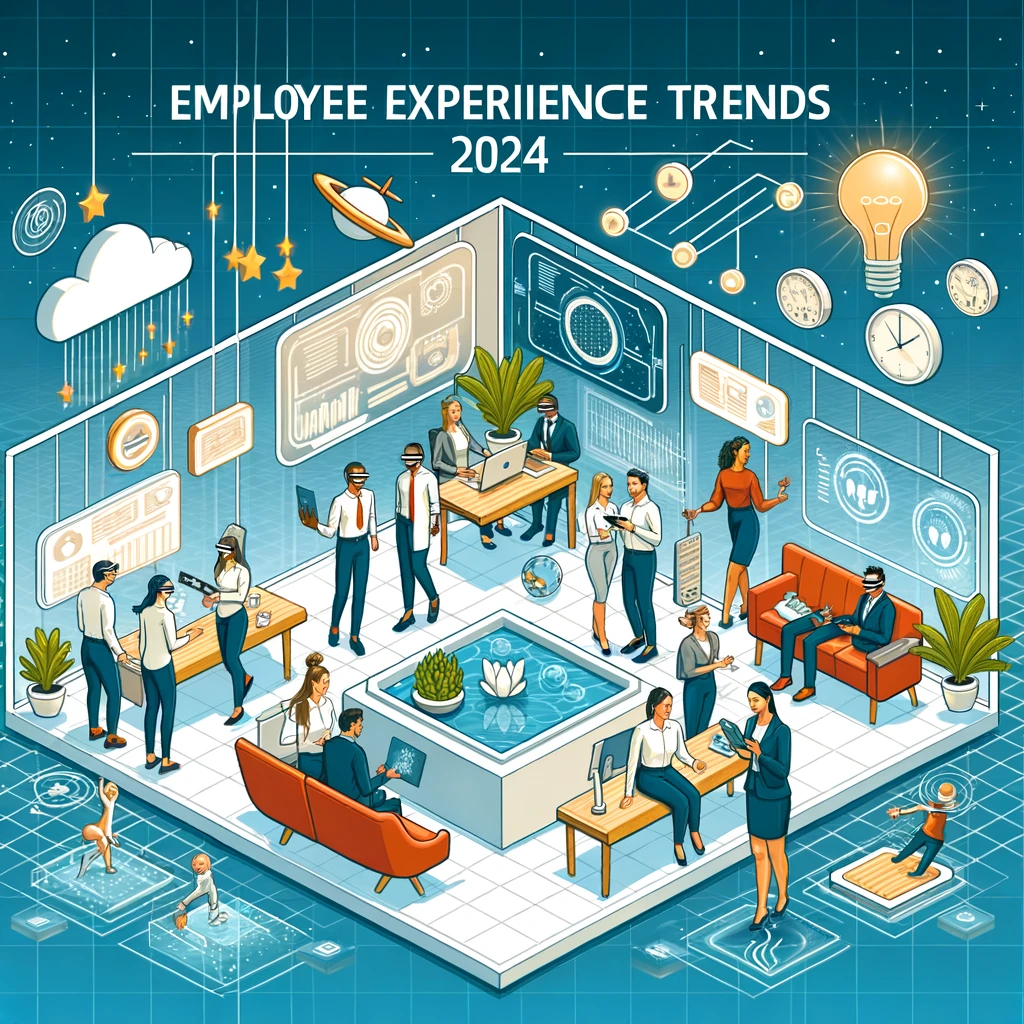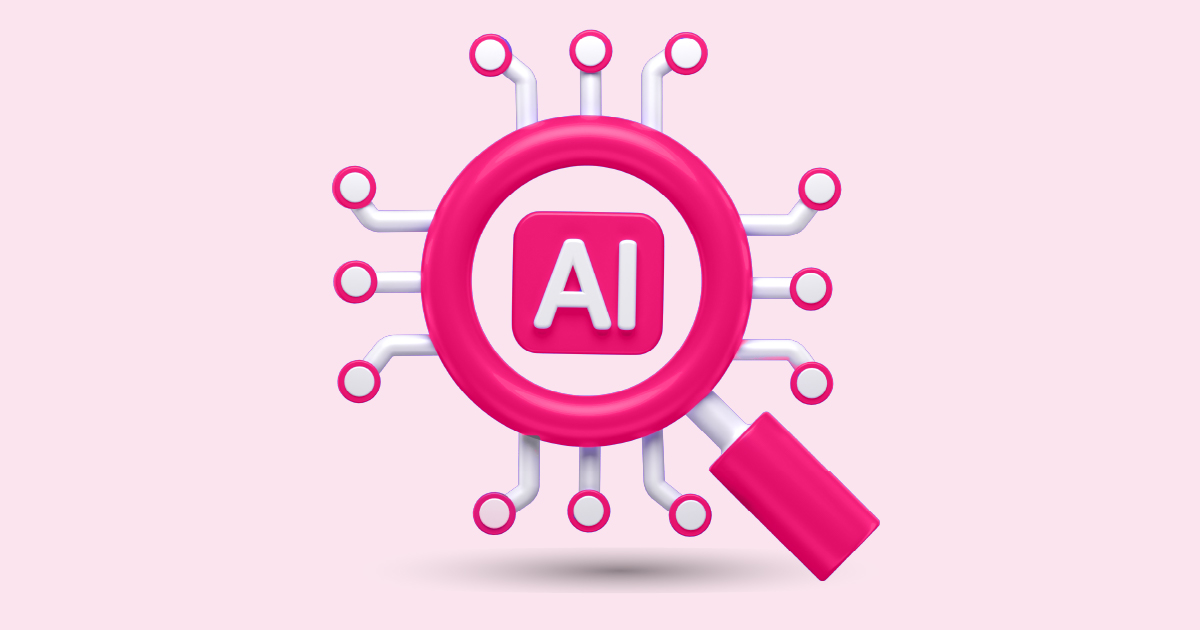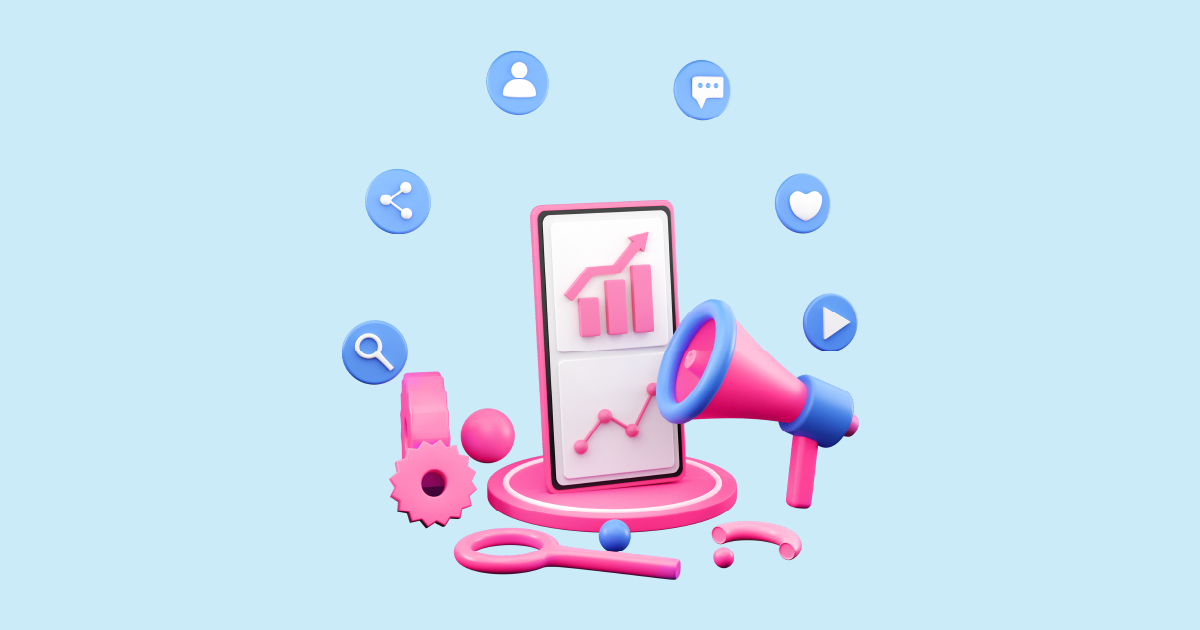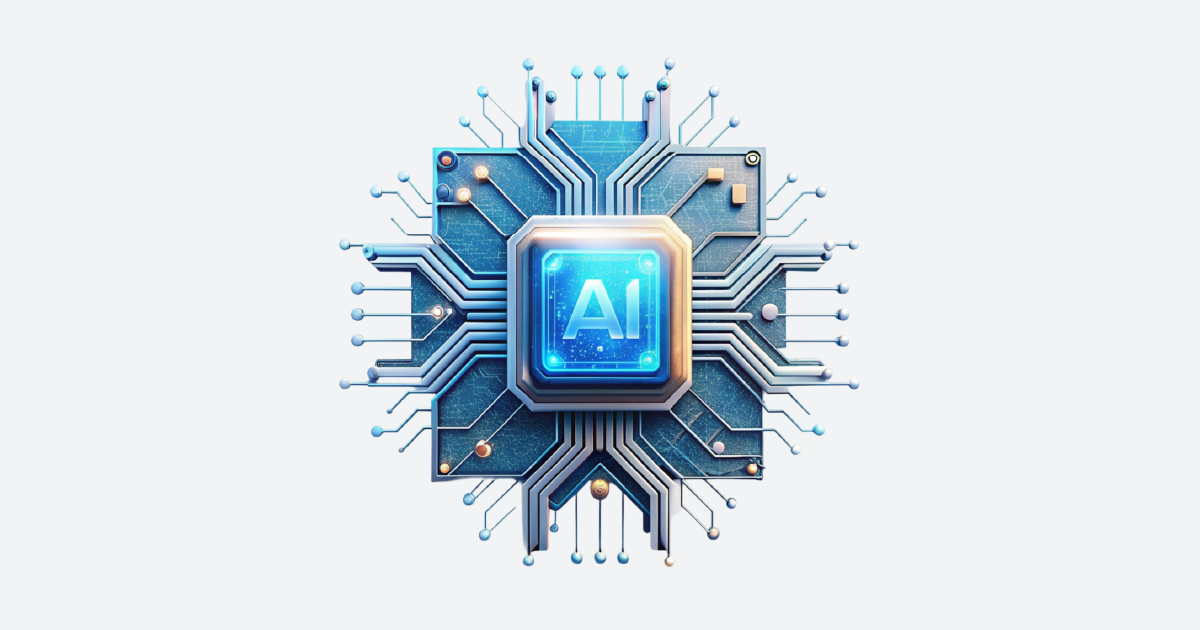In today’s dynamic work landscape, staying attuned to employee experience trends is crucial. These trends, from remote work flexibility to mental health emphasis, are reshaping workplace dynamics. Embracing diversity, integrating AI, and fostering open communication are key aspects. By understanding and adapting to these trends, businesses can create thriving environments where employees flourish, ensuring a future-ready and harmonious workplace. Stay ahead by embracing the evolution of employee experience.
Top 8 Employee Experience Trends in 2024

1. Remote Work Revolution: Embracing Flexibility
One of the prominent trends is the surge in remote work. With advanced digital tools and collaborative platforms, companies are allowing employees to work from anywhere. This trend not only enhances work-life balance but also promotes productivity and job satisfaction.
2. Emphasis on Mental Health and Well-being
In today’s fast-paced world, mental health awareness is gaining momentum. Employers are focusing on creating a supportive environment that acknowledges the importance of mental well-being. Initiatives like counseling services, stress-relief programs, and flexible work hours are becoming integral parts of the workplace culture.
3. Diversity, Equity, and Inclusion: Fostering a Harmonious Workplace
Diversity, equity, and inclusion are no longer just buzzwords but fundamental elements of a thriving workplace. Companies are embracing these values, fostering a diverse workforce, and ensuring equal opportunities for all employees. Inclusive workplaces not only attract top talent but also enhance creativity and innovation.
4. AI and Automation: Redefining Job Roles
The integration of artificial intelligence and automation is transforming traditional job roles. While automation handles repetitive tasks, employees are encouraged to focus on tasks that require human intelligence, creativity, and empathy. Upskilling and reskilling programs are becoming essential to prepare the workforce for the jobs of the future.
5. Personalized Employee Benefits: Tailoring Perks to Individual Needs
Generic employee benefits are evolving into personalized packages. Companies are conducting surveys and feedback sessions to understand employees’ needs better. From flexible working hours to personalized healthcare plans, these tailored benefits enhance job satisfaction and employee retention.
6. Hybrid Work Models: Bridging the Gap Between Remote and On-site Work
Hybrid work models, combining remote and on-site work, are gaining popularity. This approach offers flexibility while maintaining essential in-person collaboration. Striking the right balance between remote and on-site work is essential for fostering teamwork, innovation, and a cohesive organizational culture.
7. Upskilling Initiatives: Investing in Employee Growth
Continuous learning is key to adapting to evolving job roles. Companies are investing in upskilling initiatives, offering online courses, workshops, and certifications. These initiatives not only enhance employees’ skills but also boost their confidence and job satisfaction, leading to higher retention rates.
8. Employee Feedback Culture: Encouraging Open Communication
A culture of open communication is vital for understanding employee needs and concerns. Companies are implementing regular feedback mechanisms, such as surveys and town hall meetings. This transparent approach fosters trust, encourages collaboration, and ensures that employees feel valued and heard.
Conclusion
In conclusion, the future of work is shaped by these dynamic employee experience trends. Embracing remote work, prioritizing mental health, promoting diversity and inclusion, integrating AI, offering personalized benefits, implementing hybrid work models, investing in upskilling, and fostering open communication are essential steps toward creating a positive and enriching employee experience.
To explore how these trends can be tailored to your organization’s unique needs, request a demo from AIM Technologies today. Discover innovative solutions that will empower your workforce and drive your company toward a prosperous future.
Frequently Asked Questions
Q1: What are the benefits of a hybrid work model?
- A1: Hybrid work models offer flexibility and in-person collaboration, promoting work-life balance and maintaining a sense of organizational unity.
Q2: How can companies promote mental health in the workplace?
- A2: Companies can promote mental health by offering counseling services, stress-relief programs, flexible work hours, and creating a supportive environment where employees feel comfortable discussing mental health concerns.
Q3: What is the significance of diversity and inclusion in the workplace?
- A3: Diversity and inclusion foster creativity, innovation, and a harmonious work environment. They ensure equal opportunities for all employees, regardless of their background, leading to a more productive and inclusive workplace.
Q4: How can employees benefit from personalized employee benefits?
- A4: Personalized employee benefits cater to individual needs, enhancing job satisfaction and overall well-being. From customized healthcare plans to flexible working hours, these benefits contribute to a positive work experience.
Q5: Why is upskilling important for employees?
- A5: Upskilling equips employees with new skills and knowledge, making them adaptable to evolving job roles. It boosts confidence, job satisfaction, and career growth opportunities.



